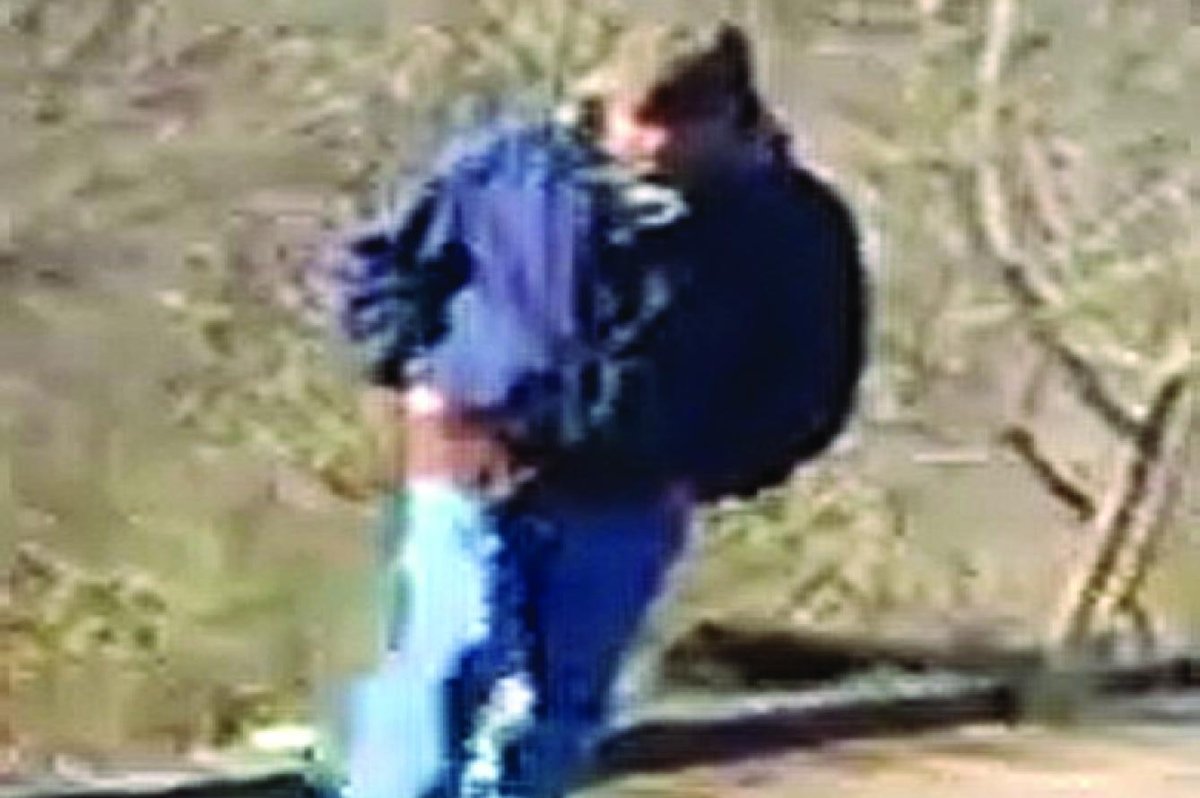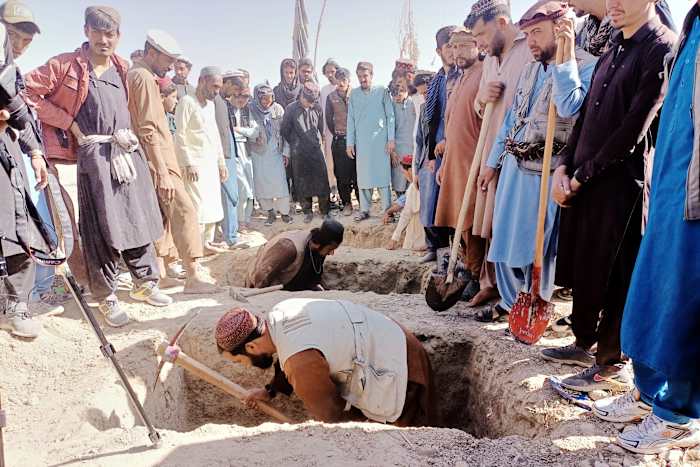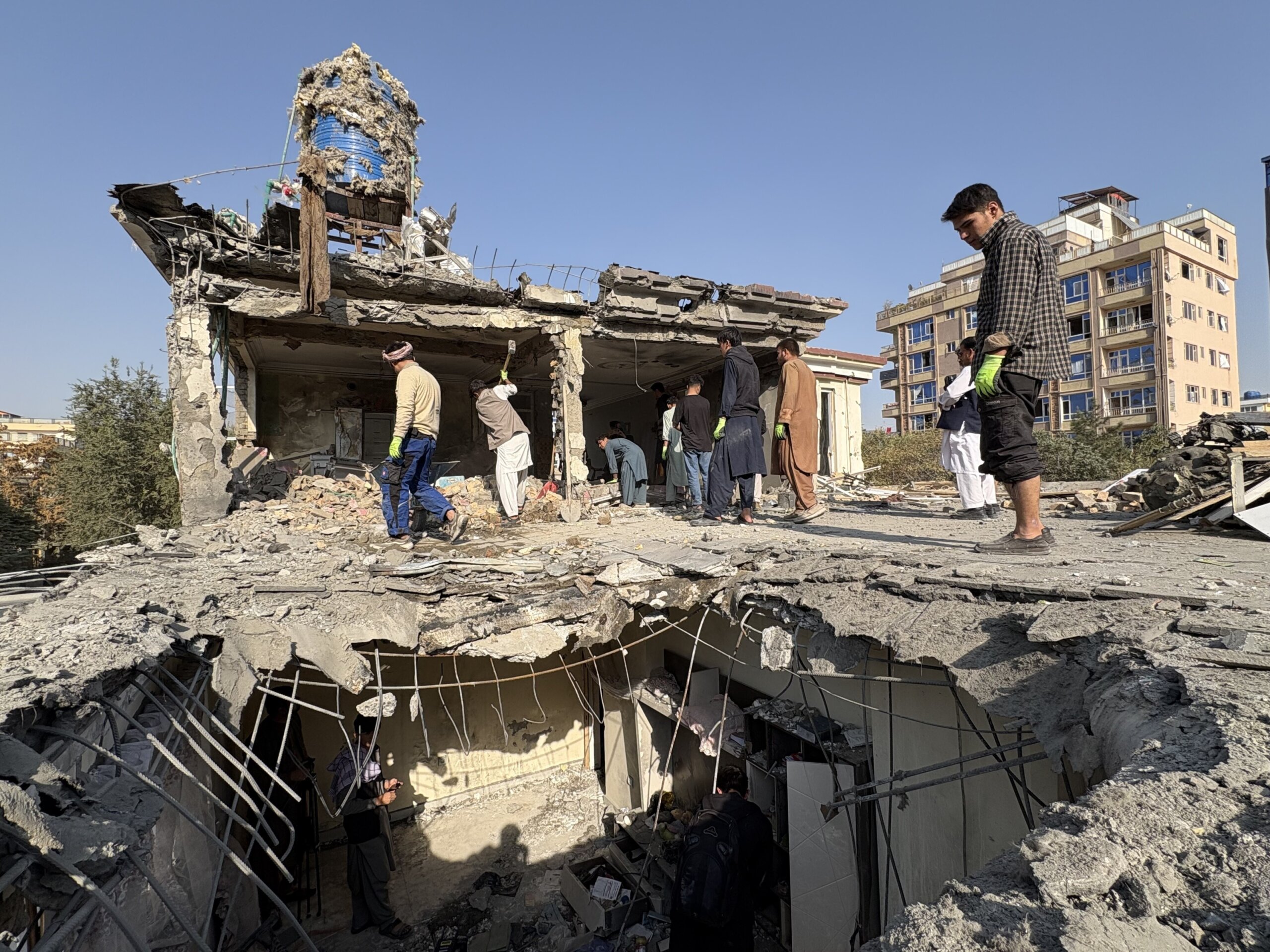An image taken from a cellphone video shot by 14-year-old Libby German on the day in 2017 that she and 13-year-old Abby Williams were slain near Delphi, Ind., shows a man police believe to be their killer. Prosecutors at the ongoing the double-murder trial of Richard Allen argued he is the “bridge guy” in the image. Photo courtesy Indiana State Police
Nov. 9 (UPI) — Jurors in the high-profile Indiana double-murder of trial of Richard Allen on Saturday concluded their second full day of deliberations without reaching a verdict.
The 12-person jury deliberated from 9 a.m. EST until just before 3 p.m. before leaving the Carroll County Courthouse in Delphi, Ind., without a verdict and are scheduled to resume deliberations at 9 a.m. Monday, the Indianapolis Star reported.
The jury got the case at 1:25 p.m. Thursday. They are attempting to reach a decision on two counts of murder and two counts of murder while kidnapping against the 52-year-old Allen, who is accused of abducting and brutally slaying Abigail “Abby” Williams, 13, and Liberty “Libby” German, 14, on Feb. 13, 2017.
The panel of five men and seven women began their deliberations following a 17-day trial in which prosecutors painted Allen as the killer of the two girls, whose bodies were found downhill from a hiking trail a day after they went missing near the Monon High Bridge in Delphi, a town of 3,000 people located 67 miles northwest of Indianapolis.
Allen was formally charged taken into custody by Indiana State Police at the end of 2022, nearly five years after the slayings. He has pleaded not guilty.
During the trial, defense lawyers portrayed Allen as an innocent man wrongly accused of the heinous crimes despite repeatedly confessing to the killings, including one instance in which he told his wife over the telephone, “I did it. I killed Abby and Libby.”
Allen’s attorneys cast doubt on the confessions, arguing they were not sincere and merely the product of mental illness and psychological trauma he suffered while incarcerated in solitary confinement, according to a neuropsychologist who testified as a defense witness.
In his closing arguments, defense attorney Bradley Rozzi noted there is no forensic evidence or explicit witness testimony linking Allen to a hiking trail or the bridge on the day the girls went missing, and argued that in the five years between the time the girls were slain and his arrest, Allen had ample opportunity to flee, but did not.
Prosecutors, however, countered by arguing that an Indiana State Trooper who had monitored more than 700 of Allen’s prison phone conversations identified his voice on a video found on Libby German’s phone, in which a man says, “Guys… down the hill.”
They claimed Allen forced the teens off the hiking trail with plans to rape them but altered his intended actions when a van passed by. Instead, they said, he cut their throats.
Prosecution witness Railly Voorhies, who was 16 in 2017, testified she was on the trail on that day with three other people and that they passed a man she identified as Allen from a grainy still image of the so-called “bridge guy” — a man recorded in Libby’s 43-second video who was walking behind them on the trail.
The photo of the “bridge guy” was released by police shortly after the slayings and has long symbolized the hunt for the killer in the high-profile case.


